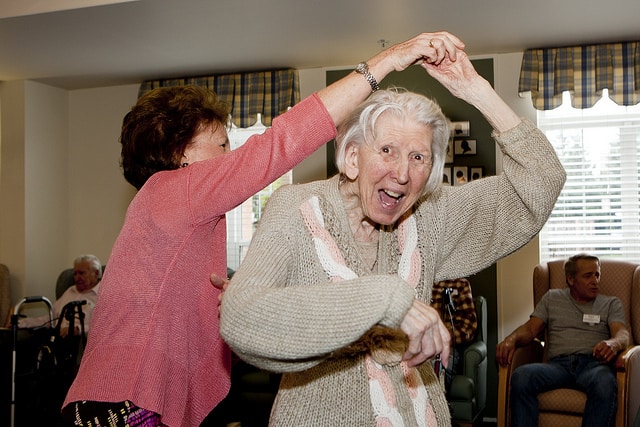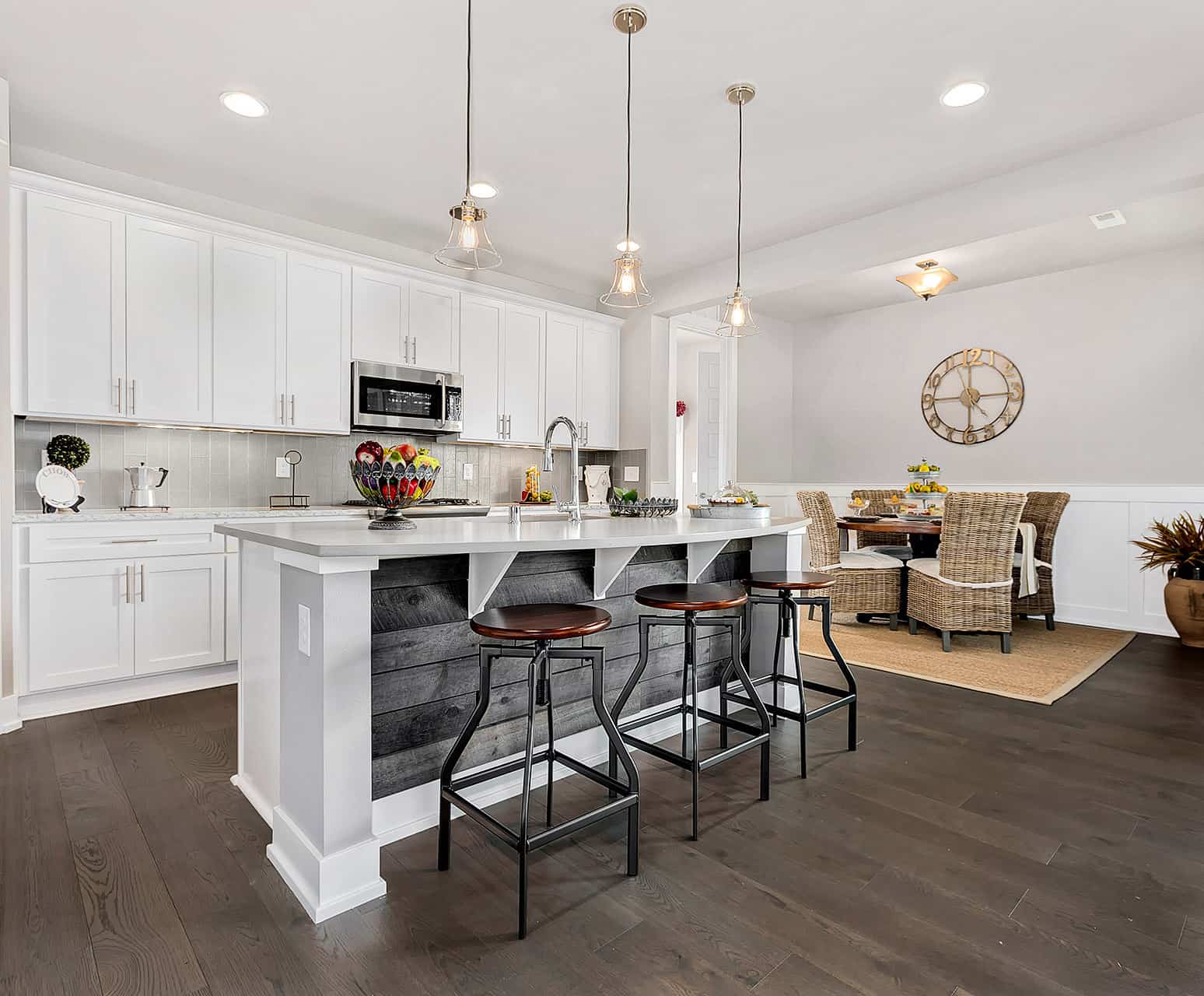
Many women in the United States over the age of 50 live in homes with at least one other senior female roommate — a trend that seems to be on the rise. Nearly four percent of women aged 65 and older are moving in with friends or strangers as a way to save money in retirement, feel safer living independently, and build a supportive network.
Since it’s likely that nearly one-third of baby boomers will enter into old age without a spouse, according to the National Center for Family & Marriage Research, conditions are ripe to make home sharing an option for many seniors. It sounds intriguing, but how do you know if sharing a home is the right way to spend your golden years?
First, start by asking yourself why you want or need a roommate. Then, examine your space. Do you have the extra room needed for another person to have privacy and feel welcome? Or, are you looking for a new living arrangement altogether? Second, think about how long it has been since you have lived with someone. What makes you a good roommate? Do you have any habits you need to develop — or perhaps eliminate — so that you can keep your roommate happy and comfortable?
Once you know if you’re ready for a roommate, you’ll want to be prepared for the changes that come with your new living arrangement. This guide offers a few ways to start your house-sharing adventure on the right foot.
Advantages of Senior Roommates

Living on a fixed income provides many securities that are especially important later in life. However, some seniors can also feel limited with what they can do based on their retirement and Social Security income. That’s why financial freedom is typically the number one reason seniors decide to live together. Other benefits of having a roommate in your golden years include:
- Having a person around to call for help if there is an accident or injury, like a slip or fall.
- Limiting isolation and increasing social interaction and activities.
- Sharing the responsibilities of household chores, home maintenance and running errands.
- Sharing living expenses and other financial expenditures.
Having a roommate or two can be a relief to a senior who lost a spouse or whose children live far away. Not only can you have daily company, but you can start an enduring friendship that enables you to reduce the pressure of managing a household alone and enjoy travel, social activities or other adventures with less stress.
There are some disadvantages to consider as well. While having a roommate can help your retirement savings last a little longer, you can also put yourself at financial risk if you aren’t careful. A roommate who breaks the lease or doesn’t pay their bills could put you in an unexpected financial hole, at least temporarily, so be sure you have a safety net for those circumstances. If managing disagreements becomes too frequent an occurrence, the strain on your emotions and well-being can take a toll on both your mental and physical health. That’s why it is essential that you take the time to find the right roommate — someone with qualities that fit you now and in the future.
Tips for Finding a Good Roommate

For the best house-sharing experience, you’ll want to find a roommate that creates harmony with you and your household. Finding someone who is trustworthy means more than just paying their bills on time — and even though that seems simple enough, it’s not always that easy.
You are most likely to have success by sharing a place with a friend or someone you know through a friend. No matter how well you know someone — or how highly they are recommended — there can be still be a risk for dilemmas. Keep these questions in mind when you are interviewing potential new housemates to make sure you are all on the same page.
- Do they meet your expectations of a good roommate? For example, are they considerate, do they share similar values, and do they have a strong sense of respect and tidiness?
- What are the deal breakers? Is it OK if they have a pet or a significant other who sleeps over?
- Are they financially stable? Do they pass a credit and background check?
- Have you checked their references? Who are the people they listed, and what are their opinions of the candidate’s integrity, honesty, communication and cleanliness?
- What can you find with an internet search on their name? Do you see any red flags?
- Is this person physically and mentally well, or will you be taking on some caretaking duties?
Some seniors prefer having one roommate, while others live together in threes or even fours. There are many organizations out there that can help seniors meet others who are interested in finding a roommate, like the Golden Girls Network, Silvernest and Senior Homeshares. One of the best ways to start your roommate situation off right is to establish agreed-upon logistics, with built-in flexibility for rules.
Planning Your Roommate Logistics
Your roommate logistics — including how you pay bills, share food and manage chores — will all depend on your specific situation. There are several common senior-living roommate scenarios to consider:
- Renting out an extra room in your current home: There is a difference between renting a room and sharing a home. Be sure you both understand the arrangement. Make sure payment dates are clearly marked on a calendar and you both agree upon how payments should be made, such as by cash, check or direct deposit.
- Renting an apartment with one or more senior roommates: It’s important that everyone living in the home is on the lease so that all roommates share responsibility for the rent and requirements. Make sure common areas have clearly defined rules. Will you buy groceries separately, or will you pool your money and eat meals together?
- Sharing an apartment in an assisted-living facility: Be sure to set ground rules for keeping your shared spaces neat and clean. Will chores change every month, or will each roommate be responsible for certain duties?
- Purchasing a home together in a retirement community: Tying yourself to someone financially is a big deal. Be sure you talk to a financial planner to understand what can happen if one of you wants to sell but the other does not, or if one of you has an extended stay in the hospital.
Once you understand the logistics of becoming roommates, you’ll want to establish some basic guidelines for keeping the peace and tranquility of your shared home.
Establishing Roommate Dos and Don’ts

Most experts agree that roommate problems, regardless of age, typically arise in fairly common areas of conflict: someone never puts their dishes away, the same person is always picking up the yard, one person brings in a pet unannounced, and the list goes on. These issues can be resolved quickly if they are addressed before the move-in with a roommate agreement. Some ways to establish communal etiquette include:
- Deciding on how to clean, organize and care for common rooms.
- Sharing a weekly meal or having a regularly scheduled meeting to check in.
- Agreeing on rules for food, smoking, pets and overnight guests.
- Making sure all deposits are paid before house keys are distributed.
- Creating an exit strategy — together — in case one of you wants or needs to leave.
With aging comes rising healthcare and housing costs, a substantial motivator for seniors to live together. In addition to the financial benefits, research supports the emotional, social and physical benefits of having a roommate in retirement. With a roommate, you can also split household chores, feel safer with someone else around, and ease into old age without feeling alone. The most important thing, however, is to remember to have fun. Find a roommate you get along with and who meshes well with your personality and lifestyle.

 United States
United States Canada
Canada